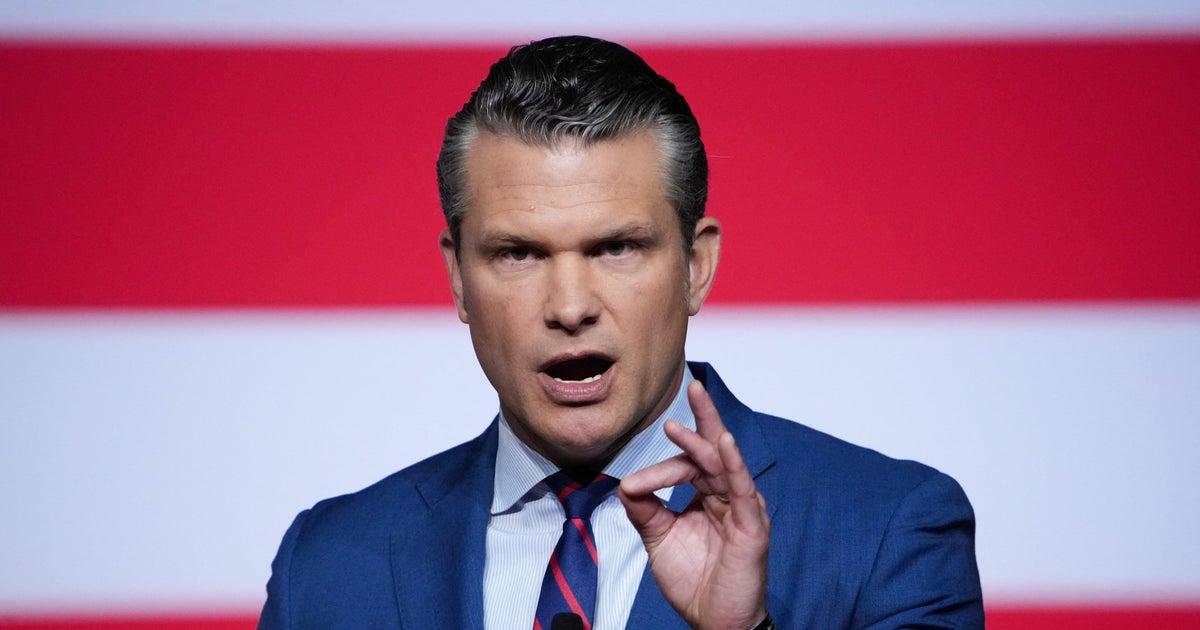
The Pentagon press corps’ negotiations with the Defense Department over easing proposed restrictions on their reporting have reached an impasse, according to the Pentagon Press Association — though the Pentagon says it has negotiated in good faith.
In a statement Wednesday, the Association said it “has been cautious” with its public statements about the restrictions as negotiations were underway over revising the new rules, which reporters are required to sign off on or else lose their Pentagon press credentials.
“Unfortunately, those negotiations have not been as successful as we had hoped,” said the Association, which represents reporters who cover the Pentagon.
In September, the Defense Department sent reporters a memo saying that they’d be required to sign a document acknowledging they would not disclose either classified or controlled unclassified information that is not formally authorized for publication. It warned Pentagon reporters they could lose their press credentials for “unauthorized access, attempted unauthorized access, or unauthorized disclosure” of classified information or anything designated as “controlled unclassified information.”
The memo also said, “DoW information must be approved before public release … even if it is unclassified.” The Trump administration has sought to rename the Defense Department to the Department of War, though a permanent renaming could require congressional approval.
Currently, news organizations, including CBS News, are assigned workspaces and credentials that allow journalists limited access in the Pentagon.
Compliance with the directive would mean that journalists would not be able to use unnamed U.S. military sources in much of their reporting without risking loss of access to the Pentagon.
Many media outlets balked at the directive and vowed to push back. The New York Times said in a statement the restrictions were “at stark odds with the constitutional protections of a free press in a democracy.”
Over the course of negotiations over the restrictions, the Pentagon dropped a requirement for reporters “to express agreement with the new policy as a condition for obtaining press credentials,” the Association’s statement said. But it went on to say that “the Pentagon is still asking us to affirm in writing our ‘understanding’ of policies that appear designed to stifle a free press and potentially expose us to prosecution for simply doing our jobs.”
The Association said that the new credentialing policy “still leaves open the threat of the Department of Defense revoking credentials for reporters who exercise their First Amendment rights by seeking information that hasn’t been pre-approved for formal release, even when the information is entirely unclassified.”
“The policy conveys an unprecedented message of intimidation to everyone within the DoD, warning against any unapproved interactions with the press and even suggesting it’s criminal to speak without express permission — which plainly, it is not,” the statement said.
News outlets were asked to sign the revised guidelines by next week.
The Association also said it was “surprised and disturbed to learn through the new policy statement that the Pentagon plans to move all of our news organizations from our dedicated workspaces,” a move it fears will isolate reporters and make it more difficult to communicate with sources and military spokespeople.
“We hope the Pentagon reconsiders,” the Association said.
Pentagon spokesman Sean Parnell said on X that the department has taken an “accommodating approach” and “engaged in good-faith negotiations with the Pentagon Press Association, maintaining open dialogue with its members and accepting many of their suggested edits.”
Parnell said reporters are not required to clear their stories with the Pentagon, and are only being asked to confirm that they understand the department’s policies on how information is handled.
“Access to the Pentagon is a privilege, not a right and the Department is not only legally permitted, but morally obligated to impose reasonable regulations on the exercise of that privilege,” Parnell wrote.
